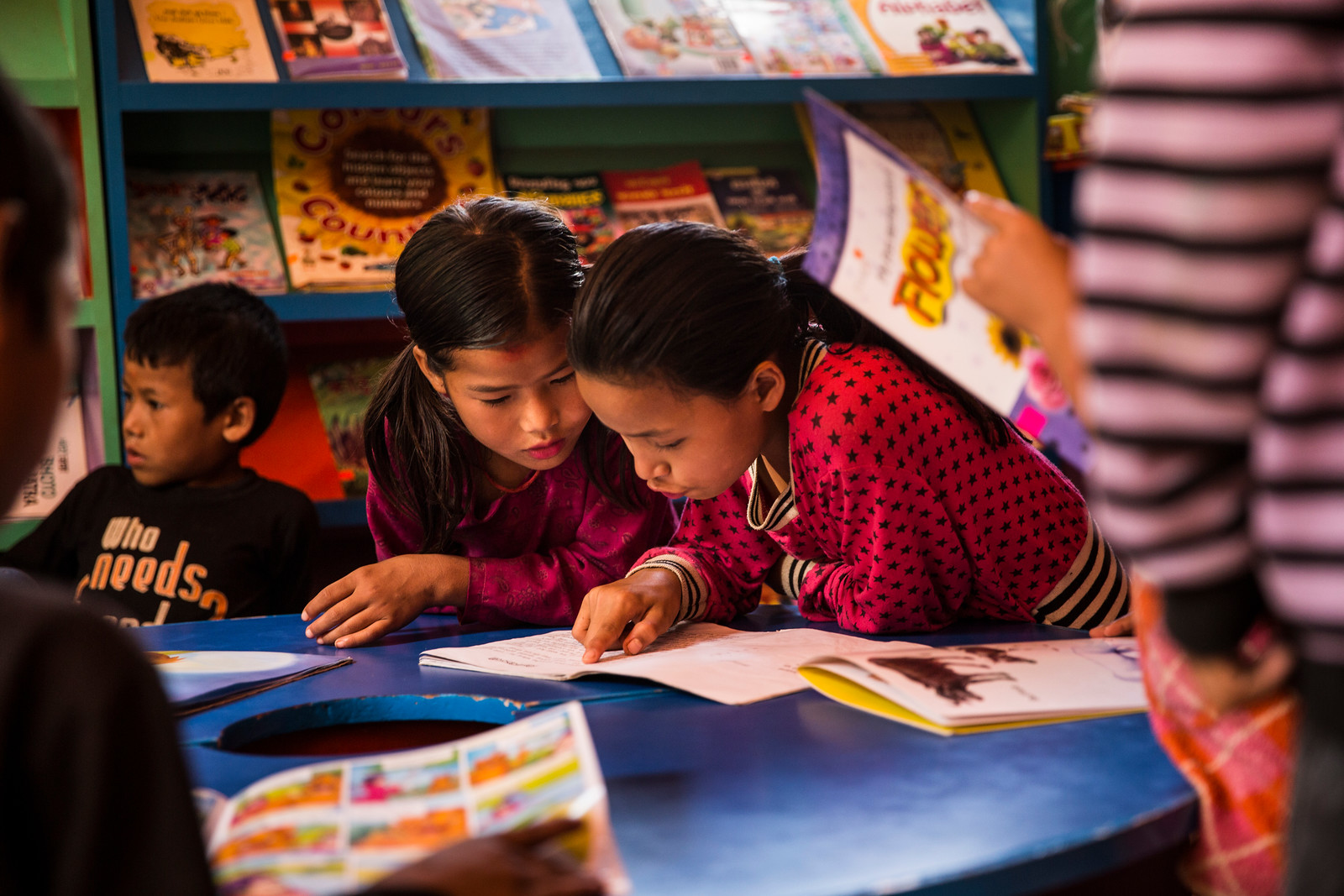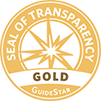
In the 25 years since the signing of the Beijing Declaration and Platform for Action for Universal Women’s Rights, READ Global has strengthened its own commitment to advancing gender equality. By uplifting women’s voices and rights, READ Centers have helped transform gender norms in communities, a shift that helps everyone living in the community to prosper. With READ Centers serving as safe and trusted spaces for everyone in a community – especially women and girls – to access education and opportunity, we have confidence they will realize their potential and uncover more opportunities for self empowerment. On International Women’s Day, March 8, we celebrate the work of women and girls across READ Centers in solidarity with our partners globally.
The READ Model imagines a world where women and girls are not afraid to walk home alone, and where they do not need permission from a male to venture outside of the home. We believe that men and women should be paid equally for the same work and should be recognized for their contributions at home – whether paid or not. And we know that through literacy, community organizing, economic empowerment, and leadership training, we can realize gender equality in rural communities across South Asia. In the nearly 30 years of READ Global’s history, we have seen that READ Centers are catalyzing hubs for progress and gender equality. (Learn more about the READ Model and our impact here.
Taking Stock of Gender Equality in South Asia in Today’s Fast-Paced Economy
We understand that despite some progress, “real change has been agonizingly slow for the majority of women and girls in the world” according to recent statistics by UN Women. Today, not a single country in the world can claim to have achieved gender equality, and this deficit is present across many facets of life, from education to freedom to economic opportunity. This is especially true in South Asia, where, according to the World Economic Forum, the average gender gap of 34.2% makes it the second-lowest scoring region on this year’s Global Gender Gap Index — a measure of the relative gaps between women and men across four key areas: health, education, economy and politics. Further, the Asian Development Bank found that of those employed, only 20% of women in South Asia are in non-agriculture wage employment – the lowest among the world’s regions.
However, in the communities where we work in Bhutan, India, and Nepal, we have seen meaningful progress, with an increase in women holding leadership roles, having more freedom to leave their homes and earn a living, having better access to financial capital and economic opportunities, more equality in their homes, and more priority being given to educating women and girls. Although barriers remain for women across South Asia, our tested READ Model continues to help support women to achieve their goals.
Empowering Women to Support Equality – “I Am a Tech Age Girl and I Can Empower My Own Community”
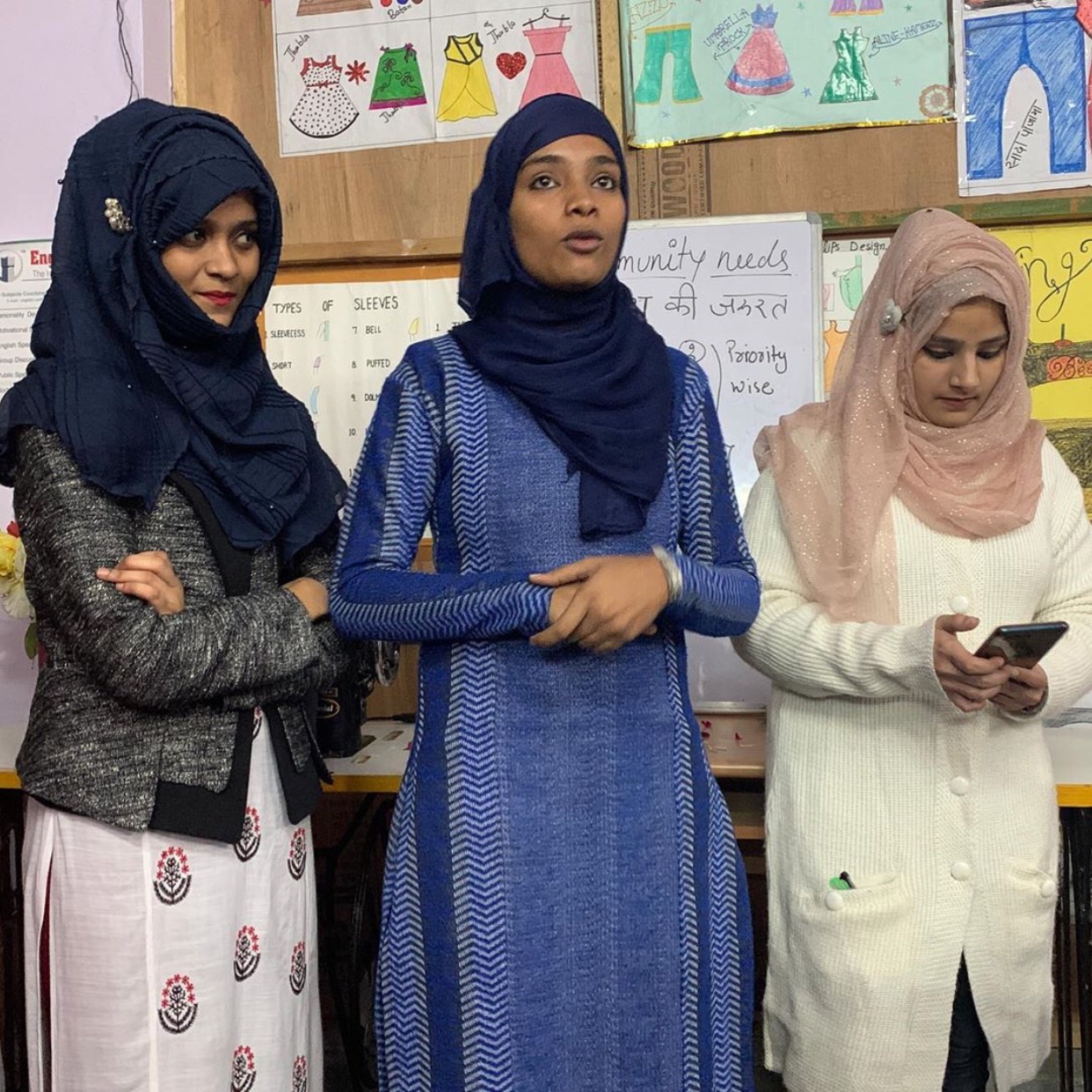
With our ongoing commitment to realizing gender equality in the communities we serve, we launched new programs in 2019, focused on uplifting women and girls the communities we serve. One such program is Tech Age Girls designed to equip young women with a growth mindset for learning and improvement of their skills and leadership. Launched in India and Nepal in partnership with IREX in 2019 to help empower the next generation of female leaders, Tech Age Girls helps participants authentically reimagine in their futures. This signature IREX program equips girls with technology and leadership skills, plus the confidence to push their own boundaries as they think about their futures. Inspiring stories from our first cohort of participants are a strong testament to the trusted position of READ Centers to deliver this transformative programming.
Launched in partnership with IREX, with support from The Stone Family Foundation for Nepal and The Asia Group Foundation & Singapore-based Columbia University Alumni Association for India, this program has impacted 670 girls from 14 READ Centers, where we are already observing positive outcomes based on testimonials from the young women participants since launching in the summer of 2019. For most, this was their first exploration into technology, leadership, and examining what it means to be a young female leader in South Asia.
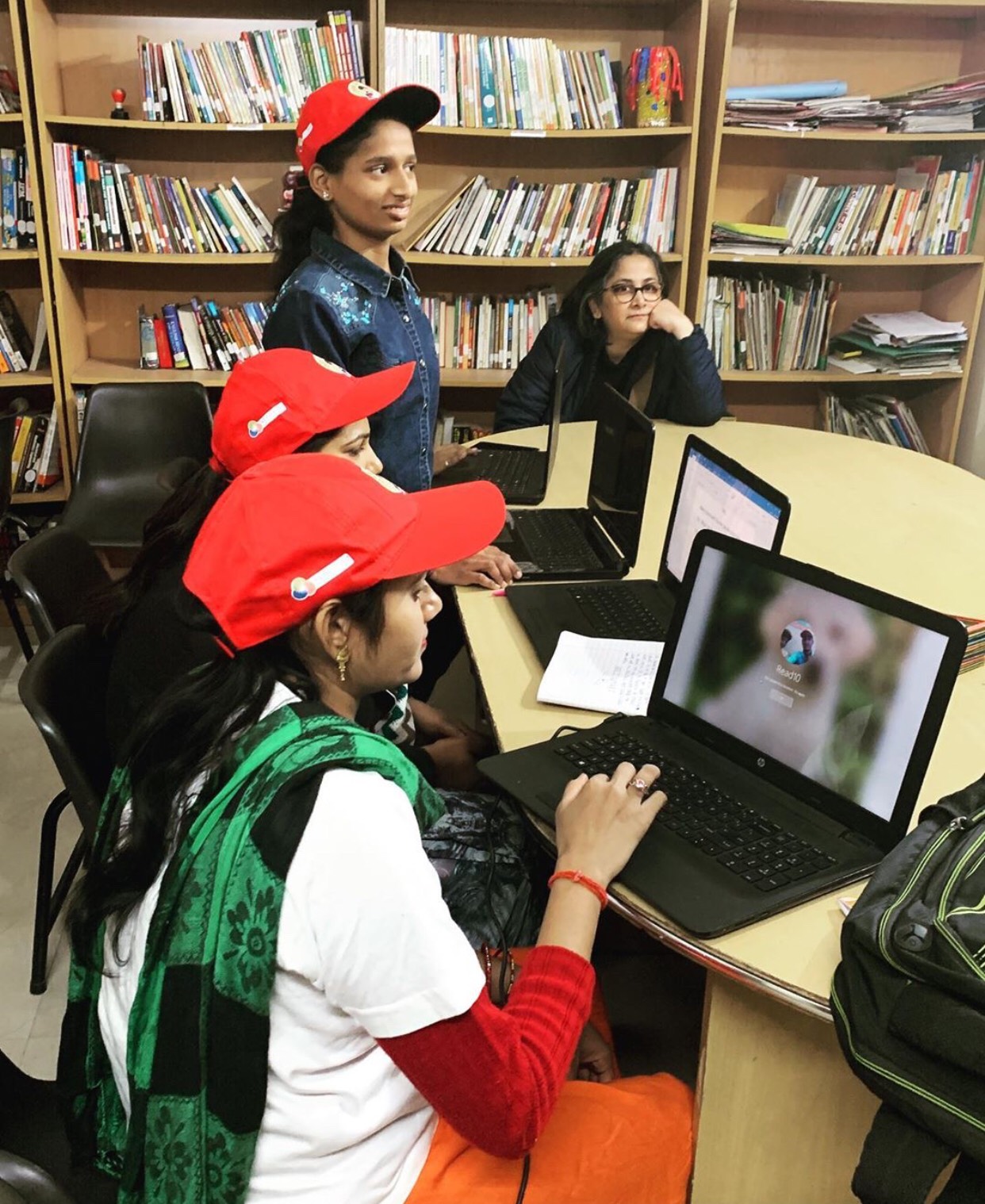
Many young women shared that they have been more expressive in their school classrooms, ranging from better class participation and relationships with teachers to more confidence expressing personal needs, such as around feminine hygiene. This confidence also blossomed at home, with several girls describing how they are more active and involved in family discussions, AND many observed that their parents have been supportive of this change since the program’s launch.
“Through Tech Age Girls, I came to realize that I could be a good speaker. I have shared my learning points with my friends and family. … my confidence has increased as has my ability to use technology. Because of TAG training, now I am a fearless teenager with confidence.” ~ Bipana Kumari Saud, Janata, Nepal
Before participating in Tech Age Girls, Nirmala Neupane from Tikapur, Nepal, found stepping into her strengths and helping to lead at her secondary school challenging. She had always dreamed of helping women living in remote areas but didn’t know how. Since joining, she has proudly proclaimed: “I am a Tech Age girl and can empower my community,” as she enthusiastically takes in the lessons about gender equality and social inclusion.
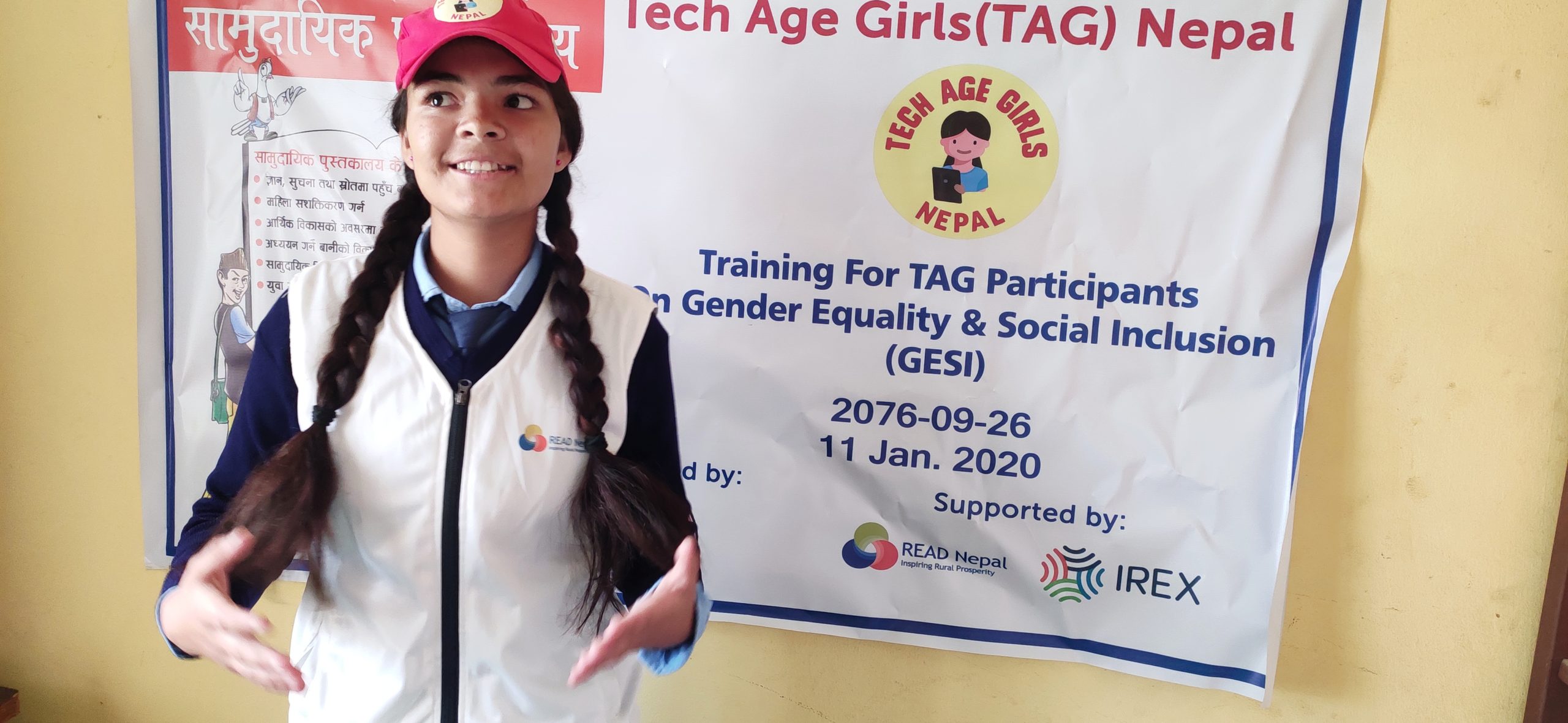
Nirmala says: “TAG has helped not only me but several other girls to think critically with a positive attitude [regarding] every subject.
Our first cohort of Tech Age Girls will complete their program in 2020. We are eager to follow their journeys as they set their own visions and serve as the new generation of young women leaders in South Asia working towards gender equality.
The Future of Building Gender Equality and Realizing Women’s Rights with READ Centers
“After participating in various training programs provided by READ, I am now able to do many things for myself and my family. I made new friends, learnt new skills and I am helping my husband provide for the family. Life has been easier and better now.”
~Tenzin Yangzom, 28 Thimphu, Bhutan
We will continue to build on our experience delivering these high-impact programs for women and girls, and remain committed to bringing new opportunities to women and girls across our network of 108 READ Centers. Our collaborations with organizations like IREX will enable READ Global and the READ country teams in Bhutan, India, and Nepal to identify the greatest needs for gender equality, so they can deliver even more programming that meets the evolving needs of women, girls, and communities across the region.

